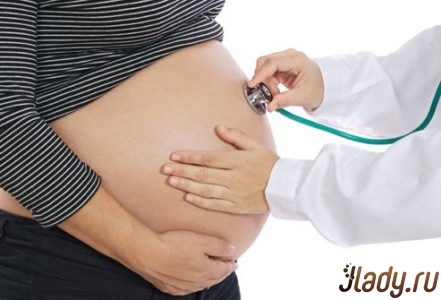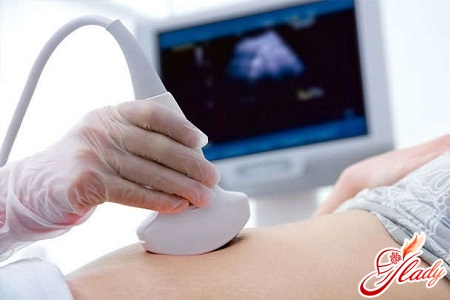 How are diseases treated during pregnancy?sexually transmitted diseases, if the infection occurred for the first time during pregnancy? Of course, such problems need to be treated, because there is a risk that the infection will affect the development of the baby. Therefore, all expectant mothers are tested for HIV, hepatitis, syphilis, gonorrhea, trichomoniasis, toxoplasmosis, chlamydial infection, herpes, cytomegalovirus, as well as conditionally pathogenic microorganisms - ureaplasma, mycoplasma, streptococci, staphylococci, intestinal bacteria. As a rule, therapy begins after 12 or after 16 weeks of pregnancy, depending on the identified microorganisms, their quantity and the presence or absence of inflammation. Infections caused by bacteria are treated with antibiotics that are safe for expectant mothers. And the strategy for treating problems caused by viruses largely depends on the duration of the process and the phase of the disease. In some cases, if the infection has simply worsened, no special treatment is required. The doctor will only give advice on changing your diet and lifestyle to strengthen your immune system. What cold medications can expectant mothers use without fear? Folk remedies are acceptable: plenty of warm drinks with honey and raspberries. This could be fruit drink, milk, warm carbonated water, weak tea. Gargling (with warm water and soda, furatsilin, weak solutions of other antiseptics), rinsing the nose (Aquamaris, YADRAN; weak saline solution) are mandatory. If the temperature rises above 37.5 degrees, you can take a paracetamol tablet. As for any other medications, you should not take them without consulting a doctor. It is very important to stay at home, warm, and lie down more during the illness to give the body a chance to recover and not risk complications. What are doctors afraid of when they talk about low placentation? First of all, this situation is fraught with the development of bleeding. Attaching low, the placenta becomes more vulnerable to detachment: as the uterus grows in the second trimester of pregnancy, the placenta may “detach” from the uterine muscle in its lower parts, which is accompanied by the appearance of bright bloody discharge from the vagina. Often, bleeding begins suddenly, and nothing foreshadows its approach. Such a situation can be provoked by sexual contact, physical activity, stress, even an erotic dream. Bleeding from placental abruption requires hospital treatment and, as a rule, ends well for the mother and baby, especially since in most cases the placenta rises as the uterus grows and by the 28th week of pregnancy takes the correct position, when its lower edge is higher than the area of the exit from the uterus by more than 6-7 cm. 7 cm. If this does not happen by the specified date), the doctor will recommend that the expectant mother come to the maternity hospital early, sometimes even at 35 - 36 weeks of pregnancy, in order to provide timely assistance to the woman if bleeding begins. It should also be said that the birth of a baby in a situation where the placenta reaches the exit from the uterus or covers it is possible only with the help of a cesarean section. The operation will allow the child to be removed and prevent serious bleeding in the mother.
How are diseases treated during pregnancy?sexually transmitted diseases, if the infection occurred for the first time during pregnancy? Of course, such problems need to be treated, because there is a risk that the infection will affect the development of the baby. Therefore, all expectant mothers are tested for HIV, hepatitis, syphilis, gonorrhea, trichomoniasis, toxoplasmosis, chlamydial infection, herpes, cytomegalovirus, as well as conditionally pathogenic microorganisms - ureaplasma, mycoplasma, streptococci, staphylococci, intestinal bacteria. As a rule, therapy begins after 12 or after 16 weeks of pregnancy, depending on the identified microorganisms, their quantity and the presence or absence of inflammation. Infections caused by bacteria are treated with antibiotics that are safe for expectant mothers. And the strategy for treating problems caused by viruses largely depends on the duration of the process and the phase of the disease. In some cases, if the infection has simply worsened, no special treatment is required. The doctor will only give advice on changing your diet and lifestyle to strengthen your immune system. What cold medications can expectant mothers use without fear? Folk remedies are acceptable: plenty of warm drinks with honey and raspberries. This could be fruit drink, milk, warm carbonated water, weak tea. Gargling (with warm water and soda, furatsilin, weak solutions of other antiseptics), rinsing the nose (Aquamaris, YADRAN; weak saline solution) are mandatory. If the temperature rises above 37.5 degrees, you can take a paracetamol tablet. As for any other medications, you should not take them without consulting a doctor. It is very important to stay at home, warm, and lie down more during the illness to give the body a chance to recover and not risk complications. What are doctors afraid of when they talk about low placentation? First of all, this situation is fraught with the development of bleeding. Attaching low, the placenta becomes more vulnerable to detachment: as the uterus grows in the second trimester of pregnancy, the placenta may “detach” from the uterine muscle in its lower parts, which is accompanied by the appearance of bright bloody discharge from the vagina. Often, bleeding begins suddenly, and nothing foreshadows its approach. Such a situation can be provoked by sexual contact, physical activity, stress, even an erotic dream. Bleeding from placental abruption requires hospital treatment and, as a rule, ends well for the mother and baby, especially since in most cases the placenta rises as the uterus grows and by the 28th week of pregnancy takes the correct position, when its lower edge is higher than the area of the exit from the uterus by more than 6-7 cm. 7 cm. If this does not happen by the specified date), the doctor will recommend that the expectant mother come to the maternity hospital early, sometimes even at 35 - 36 weeks of pregnancy, in order to provide timely assistance to the woman if bleeding begins. It should also be said that the birth of a baby in a situation where the placenta reaches the exit from the uterus or covers it is possible only with the help of a cesarean section. The operation will allow the child to be removed and prevent serious bleeding in the mother.

Making Money with Desserts: Success Stories
Evgeniya Polischuk (Fedutinova) instagram:@evgeniyafedutinovavk.com/janeshomebaking– It all started with baking for family and friends. Gradually, I started posting photos of my baked goods on Instagram – and orders started coming in. I made my first custom-made cake on October 13, 2014, and a little earlier I started making macaroons and cupcakes. You could say that the business “found me”, I am very […]

Soups are cold recipes with photos
Cold cucumber soup with yogurt and lemonsorbet from the chef of the restaurant La Taverna Alexander Zhurkin Photo: Getty Images Ingredients: Plain yoghurt – 125 g Cucumber – 150 g Lemon/lime sorbet – 50 g Cocktail shrimp – 24 g Fresh ginger juice – 1 g Lime juice – 5 g Fresh orange juice – 5 g Parsley – 1 g Pink pepper – 1 g Watercress – […]

barbeque kebab
Pork tenderloin in glaze Photo:Dmitry Bayrak/dbstudioPreparation time: 20 minutes + marinating time.Calories: 454 kcal per serving.For 4 servings: 4 pork tenderloins (approximately 300 g each), 1 onion, 2 cloves of garlic, 1 tsp. lemon zest, 1 tsp. lemon juice, a pinch of ground cumin, coriander and turmeric, 1 tbsp. vegetable […]

Pierre Duacan: dietary recipes: Ducane diet
Beetroot soup Photo:Season’S, Luxury Hotels RepresentationYou will need:· Boiled beetroot – 60 g· Fresh cucumbers – 20 g· Red radish – 20 g· Green onions – 10 g· Egg – 1 pc.· Drinking mineral water – 200 g· Salt – 1 gPreparation:· Boil the egg and beetroot.· Grate the cucumbers, radish and part of the beetroot. Put everything […]





